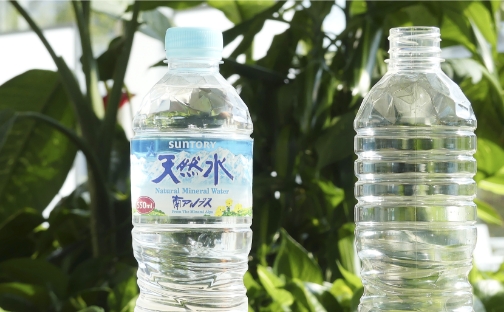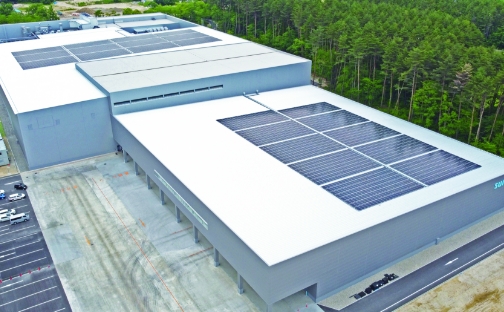Context
Containers and packaging play a crucial role in protecting and preserving the quality of products until they reach customers. However, much of this packaging becomes waste after consumption. In particular, environmental pollution resulting from the improper handling of used plastics has become a significant social issue.
In Japan, the Ministry of the Environment has formulated the Plastic Resource Recycling Strategy which recognizes the convenience of plastic products while comprehensively promoting resource recycling. In August 2024, Japan’s 5th Fundamental Plan for Establishing a Sound Material-Cycle Society was established, encouraging the circulation of plastic resources and the use of biomass plastics. It also calls for enhancing Extended Producer Responsibility (EPR) and increased initiatives across the entire supply chain.
Globally, many countries and regions are accelerating efforts to restrict the use of single-use plastics. In the EU, regulations on single-use plastic products are being strengthened under its plastics strategy, and the Packaging and Packaging Waste Regulation (PPWR) was adopted by the EU Council in December 2024.
Aiming to realize a circular economy, Suntory Group is committed to environmental considerations throughout the entire product lifecycle, from design and transportation to post-consumption recycling. We actively collaborate with diverse stakeholders to address and resolve these issues.
Core Policy
Suntory Group recognizes addressing the plastic issue in packaging as an urgent priority and strongly leads the transition to a circular and net-zero society. To this end, we established our Plastic Policy in 2019.
Suntory Group Plastic Policy
Expressing gratitude toward the gifts of nature that are the source of our products, Suntory Group is firmly committed to leading the transformation towards a circular and net-zero society, fostering a world where diverse life thrives harmoniously. While plastics offer numerous benefits due to their utility, we aim to ensure that the plastic containers and packaging we use maintain their useful functions without negatively impacting the global environment. Together with various stakeholders, we are actively pursuing solutions to these challenges. Additionally, each employee within the Suntory Group is encouraged to act responsibly, taking the lead in creating a sustainable society.
- 1.Recycle & Renewable:
-
- (1)Aim to switch all the PET bottles used globally for Suntory products to be made of recycled or bio-based material by2030, achieving zero use of virgin petroleum-based materials.
- (2)Actively work and collaborate with government agencies, industry, environmental non-governmental and non-profit organizations for the measures necessary to develop an efficient recycling system based on the situation of each country where we do business.
- 2.Reduce & Replacement:
Reduce the amount of plastic used by changing the design of containers and packaging and look for the introduction of alternative containers that do not negatively impact the environment in order to effectively utilize resources. - 3.Innovation:
Actively invest in innovation for materials and processes that improve the recycling rate and minimize environmental impact. - 4.New Behavior:
Promote activities that drive change in consumer behavior. Each Suntory employee will work to change their lifestyle, promote sorting and collection, and actively participate in social contribution activities such as cleaning up rivers and beaches.
Governance
Global Sustainability Committee
Suntory Group has established a system for promoting environmental management centered on the Global Sustainability Committee (GSC). Under the supervision of the Chief Sustainability Officer, the GSC formulates strategies related to the 7 key themes of sustainability, which include water, climate action, raw ingredients, containers and packaging, health, human rights, and lifestyle culture. The GSC also oversees the progress of these strategies and analyzes related business risks and growth opportunities, reporting to the Board of Directors on a quarterly basis.
In addition, with regard to containers and packaging, our Containers and Packaging Task Force meets 6 times a year as a forum for discussing more specific strategies and initiatives, mainly involving employees from the business sector and functional departments.
For more information on the Global Sustainability Committee, see Environmental Management.
Strategy and Risk Management
Environmental pollution and increased GHG emissions resulting from the improper handling of used plastics have become significant social issues. While there are risks such as cost increases due to taxes on single-use plastics, there are also opportuniies to reduce the use of petroleum–based materials through the development and adoption of new technologies.
Strategy
Toward the realization of a circular society, Suntory Group has established the Plastic Policy under which we aim to make our PET bottles from 100% recycled or bio-based material, eliminating the use of virgin petroleum-based materials in all of our PET bottles globally —by 2030.
In addition to proactively advancing “bottle to bottle” horizontal recycling, in which used PET bottles are turned into new ones, we are also engaged in developing technologies to replace materials with bio-based alternatives. Additionally, we are pursuing technological innovations to reduce GHG emissions, including developing the world’s first F-to-P direct recycling technology.*
- *Joint development among 4 companies including Kyoei Sangyo Co., Ltd.
For more information, see Recycle: “Bottle to Bottle“ Horizontal Recycling
Risk Management
In the EU, regulations on single-use plastic products are being strengthened, including the adoption of the Packaging and Packaging Waste Regulation (PPWR). We recognize that failing to adapt product design and environmental responses to these changes can have a direct impact on manufacturing costs and Suntory Group’s reputation.
With this understanding, Suntory Group is advancing risk identification and implementing countermeasures through collaboration between GRMC and GSC.
Additionally, we actively participate in alliances and initiatives aimed at addressing environmental challenges caused by plastics, such as the Japan Clean Ocean Material Alliance (CLOMA) and the Global Plastic Action Partnership (GPAP). We view participation in these initiatives as a crucial element for environmental risk management enabling us to address a wide range of issues through information exchange, sharing of best practices globally, and collaborating with diverse industries, governments, and international organizations.
Indicators and Targets
| Our Goals | Targets | Results |
|---|---|---|
| Percentage of sustainable materials used in PET bottles* | 2030 100% |
2024 35% |
- *Percentage of sustainable materials (e.g., recycled materials or bio-based materials) in terms of PET bottle weight
Our Initiatives
Initiatives for Plastic
Based on our Plastic Policy and “2R+B” (Reduce, Recycle + Bio) strategy, we aim to make our PET bottles 100% sustainable converting all PET bottles used globally to 100% recycled or bio-based, materials, eliminating the use of virgin petroleum-based materials —by 2030.
Cans/Bottles/Barrels/Paper Packaging/Cardboard
Under the 3R principles of Reduce, Reuse, and Recycle, we are advancing efforts toward environmentally conscious packaging. We are strengthening efforts across all 3 aspects: making containers and packaging lighter to Reduce, collecting and reusing containers for Reuse, and promoting container recycling for Recycle.








